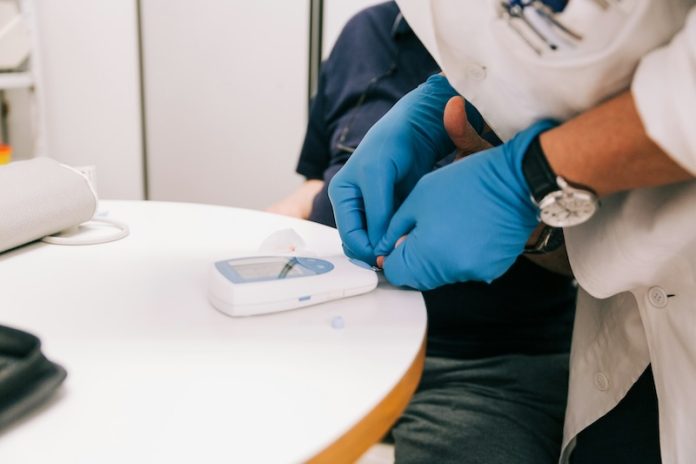
Diabetes is a chronic condition that affects how the body processes sugar, or glucose.
While many people with diabetes manage their blood sugar levels with medications, diet, and exercise, uncontrolled diabetes can lead to serious health problems.
These complications often develop slowly over time, and many people are unaware of the risks until they begin to experience symptoms.
Understanding these complications is an important step toward preventing them and staying healthy.
One of the most common complications of uncontrolled diabetes is damage to the blood vessels. High blood sugar levels can make blood vessels stiff and narrow, reducing blood flow to vital organs. This increases the risk of heart disease and stroke, two of the leading causes of death in people with diabetes.
A 2020 study in Circulation Research found that individuals with poorly managed diabetes were more than twice as likely to develop cardiovascular problems compared to those with good blood sugar control.
Nerve damage, or diabetic neuropathy, is another serious complication. Over time, high blood sugar can harm the nerves, particularly in the hands and feet. This can cause tingling, pain, or numbness, making it harder for people to notice injuries or infections.
A study in Diabetes Care in 2019 showed that up to 50% of people with diabetes experience some form of neuropathy. If untreated, even minor injuries can lead to infections that may require amputation in severe cases.
Kidney damage, known as diabetic nephropathy, is another complication that often goes unnoticed until it becomes serious. The kidneys play a crucial role in filtering waste from the blood, but high blood sugar can strain these organs over time.
A 2018 study in The Lancet Diabetes & Endocrinology revealed that uncontrolled diabetes is the leading cause of kidney failure worldwide. Symptoms like swelling in the legs, fatigue, or changes in urination may signal kidney damage and require immediate attention.
Vision problems are also common among people with poorly managed diabetes. High blood sugar can damage the tiny blood vessels in the eyes, leading to a condition called diabetic retinopathy.
This condition can cause blurry vision, dark spots, or even blindness if not treated. A 2021 report in Ophthalmology highlighted that regular eye exams can help detect early signs of retinopathy, making treatment more effective.
Uncontrolled diabetes also weakens the immune system, making it harder for the body to fight infections. People with diabetes are more prone to skin infections, urinary tract infections, and even life-threatening conditions like sepsis. A study in Clinical Infectious Diseases in 2019 found that people with uncontrolled blood sugar were three times more likely to experience severe infections compared to those with better control.
In addition to physical complications, uncontrolled diabetes can take a toll on mental health. Many people experience feelings of stress, anxiety, or depression, which can make managing the condition even harder.
Research in Diabetes Research and Clinical Practice in 2020 showed that people with diabetes are more likely to experience depression, particularly when their condition is poorly managed. This highlights the importance of addressing both physical and emotional well-being.
The good news is that many of these complications can be prevented or delayed with proper diabetes management. Regular blood sugar monitoring, a balanced diet, exercise, and medications prescribed by a doctor can help keep glucose levels in a healthy range. Routine check-ups with healthcare providers, including eye and kidney specialists, are also essential for catching problems early.
In summary, uncontrolled diabetes can lead to a wide range of complications, from heart disease and nerve damage to kidney failure and vision loss. These issues can significantly affect quality of life and may even become life-threatening if ignored. However, with careful management and early intervention, many of these risks can be reduced, helping people with diabetes live longer, healthier lives.
If you care about diabetes, please read studies about Vitamin D and type 2 diabetes, and what you need to know about avocado and type 2 diabetes.
For more information about diabetes, please see recent studies about how to eat to prevent type 2 diabetes, and 5 vitamins that may prevent complication in diabetes.
Copyright © 2025 Knowridge Science Report. All rights reserved.



